The Top 10: America's Coolest Schools 2012
Sierra's sixth annual ranking of America's greenest universities
10: Appalachian State University
Boone, North Carolina
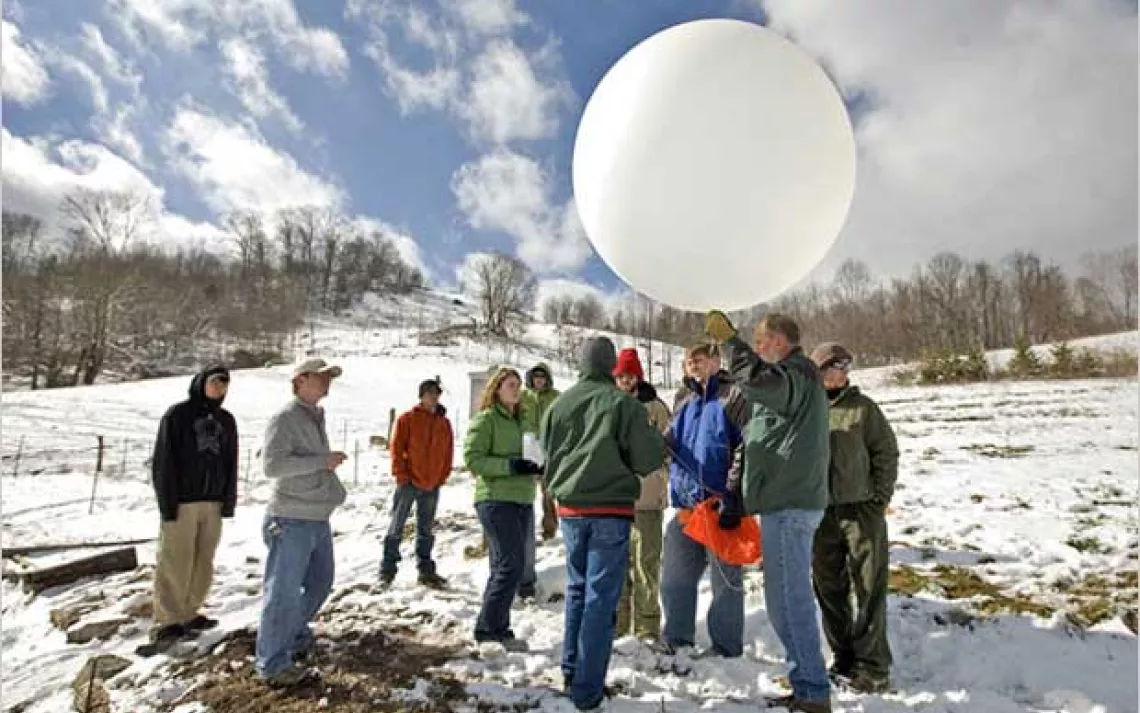
Photo courtesy of Marie Freeman/Appalachian State University
ASU has America's longest-running program (it's existed since 1984) for the study of "appropriate technology"—eco-positive advances on a small, local scale. Students get hands-on lessons in alternative power, low-impact transportation, and organic agriculture. Above, participants in a geography class launch a weather balloon to gather data for snowfall-prediction research.
9: University of California, Irvine
Irvine, California

Photo courtesy of Steve Zylius/UC Irvine
UCI has a dozen extracurricular environmental groups, so students are strongly encouraged to take part in eco-activities. The school, which hosts the high-profile "Toward a Sustainable 21st Century" conference, recycles more than 70% of its trash, while "hydration stations" help reduce bottled-water waste. Above, students plant an orange tree in a new on-campus grove.
8: Yale University
New Haven, Connecticut

Photo courtesy of Michael Marsland/Yale University
In 2005, Yale committed to reducing its carbon dioxide emissions 43% by 2020. The campus now has 14 LEED buildings, including the Platinum-certified School of Forestry and Environmental Studies. Above, students sort through items at the university's annual "spring salvage" event, which reclaims stuff that would otherwise get thrown out at the end of the academic year.
7: Duke University
Durham, North Carolina
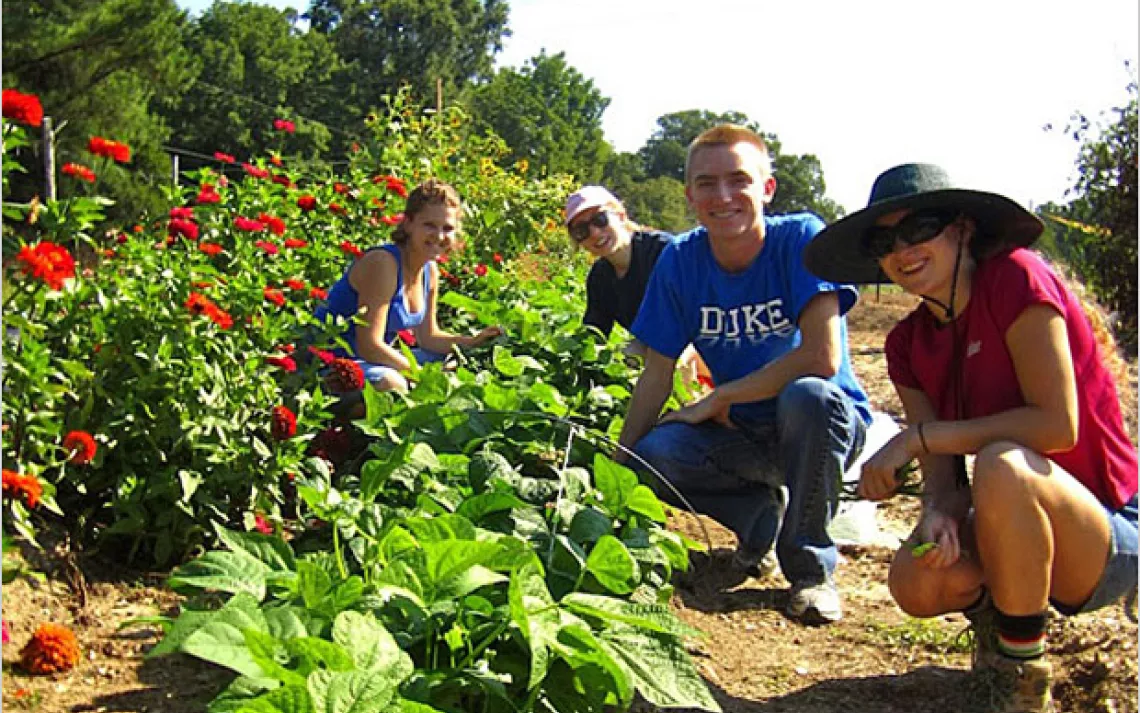
Photo courtesy of Tawnee Milko/Duke University
Duke is trying to achieve climate neutrality, so it's a leader in generating and buying offsets and coaching other schools to do the same. Above, students on the campus farm harvest green beans and other produce, all of which will be served in dining halls.
6: University of New Hampshire
Durham, New Hampshire
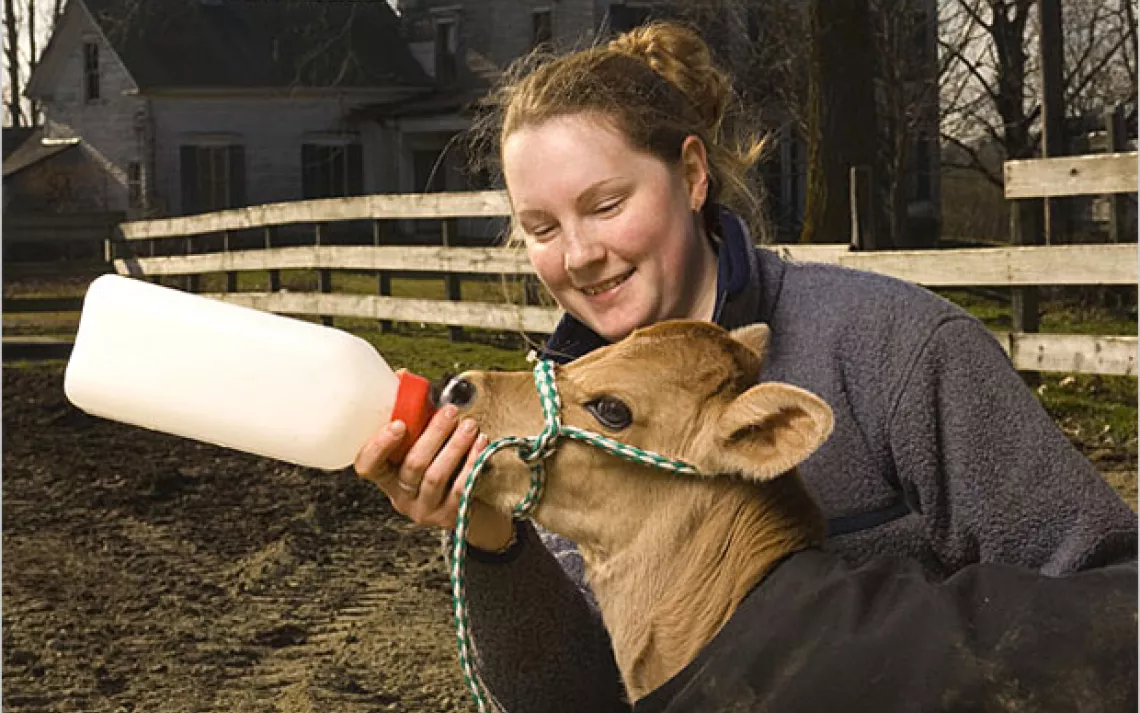
Photo courtesy of UNH Photographic Services
UNH sells renewable-energy credits off its landfill-gas pipeline, then spends that money on its own efficiency projects, reducing not only the campus's emissions but also those of the entire state. The school also runs an organic dairy-research farm, allowing students access to a milking Jersey herd.
5: University of Connecticut
Storrs, Connecticut
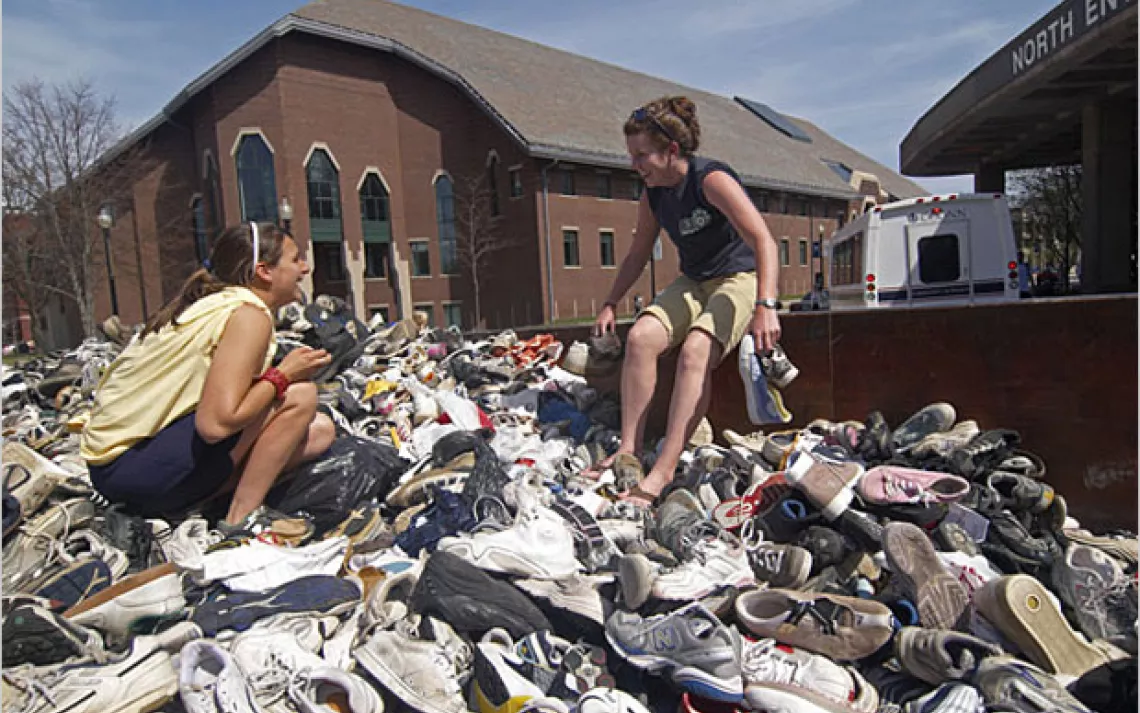
Photo courtesy of Peter Morenus/University of Connecticut
The new composting facility at UConn processes up to 15 truckloads of manure per week. And campus recycling programs are extensive--students know what to do with everything from outmoded cellphones to smelly sneakers. Above, students sort through a pile of donations headed for Nike's Reuse-A-Shoe Program, which turns worn-thin footwear into running tracks and playground surfaces.
4: University of Washington
Seattle, Washington
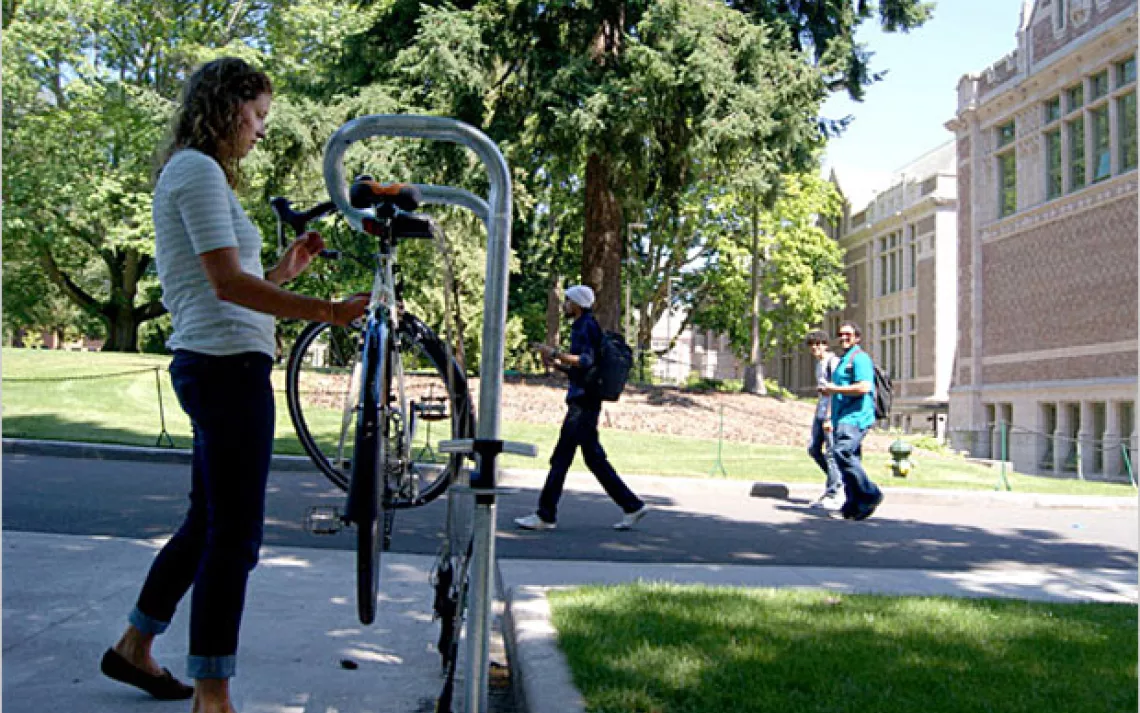
Photo courtesy of Max Sugarman/University of Washington
UW pays compulsive attention to buying local: More than half of the school's food is produced within 250 miles of campus. Administrators are also firmly committed to using renewable energy. Above, student Jamie Rowe, who coordinates UW's Campus Sustainability Fund, places her bike on one of the school's seven bicycle-repair stations.
3: Stanford University
Palo Alto, California
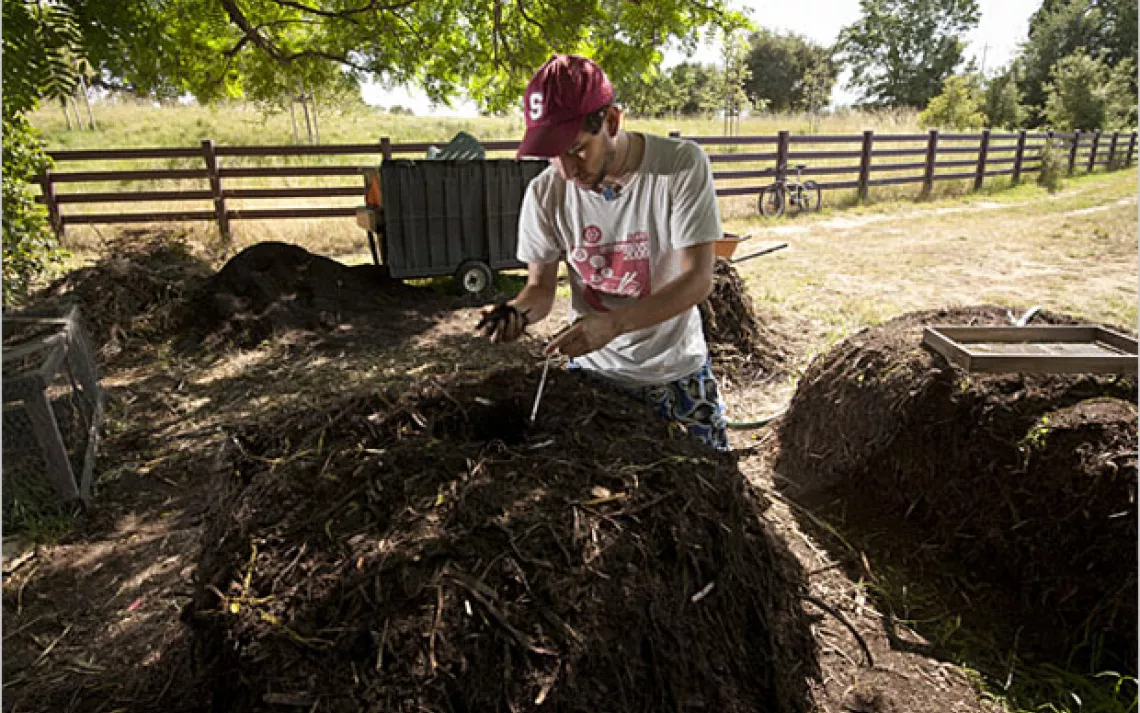
Photo courtesy of Linda A. Cicero/Stanford University News Service
At Stanford, hungry students can pick from more than 20 courses about domestic and global food systems. Dining halls and campus farming workshops harvest ingredients—including barley for beer—from their own organic gardens. Above, a student in a class called Principles and Practices of Sustainable Agriculture takes a compost pile's temperature at the Stanford Educational Farm.
2: Georgia Institute of Technology
Atlanta, Georgia

Photo courtesy of Zach Porter/Georgia Institute of Technology
Georgia Tech steers students toward taking at least one class about sustainability—and offers more than 260 such courses to choose from. The school invests its endowment responsibly and aggressively prevents dining-hall waste. Above, Captain Planet poses with students and staff during the campus's 15th annual Earth Day celebration.
1: University of California, Davis
Davis, California

Photo courtesy of Gregory Urquiaga/UC Davis
UC Davis is over-the-top thorough about all the nitty-gritty aspects of good stewardship. Lots of time and money go toward a well-rounded set of efforts, including being vigilant about using the school's purchasing power for good, diverting around 70% of its trash from landfills, and offering sound transportation solutions: On any given day, 20,000 bikes roam the campus. Pictured above is UC Davis West Village, which opened last October as America's largest planned zero-net-energy residential community.
 The Magazine of The Sierra Club
The Magazine of The Sierra Club